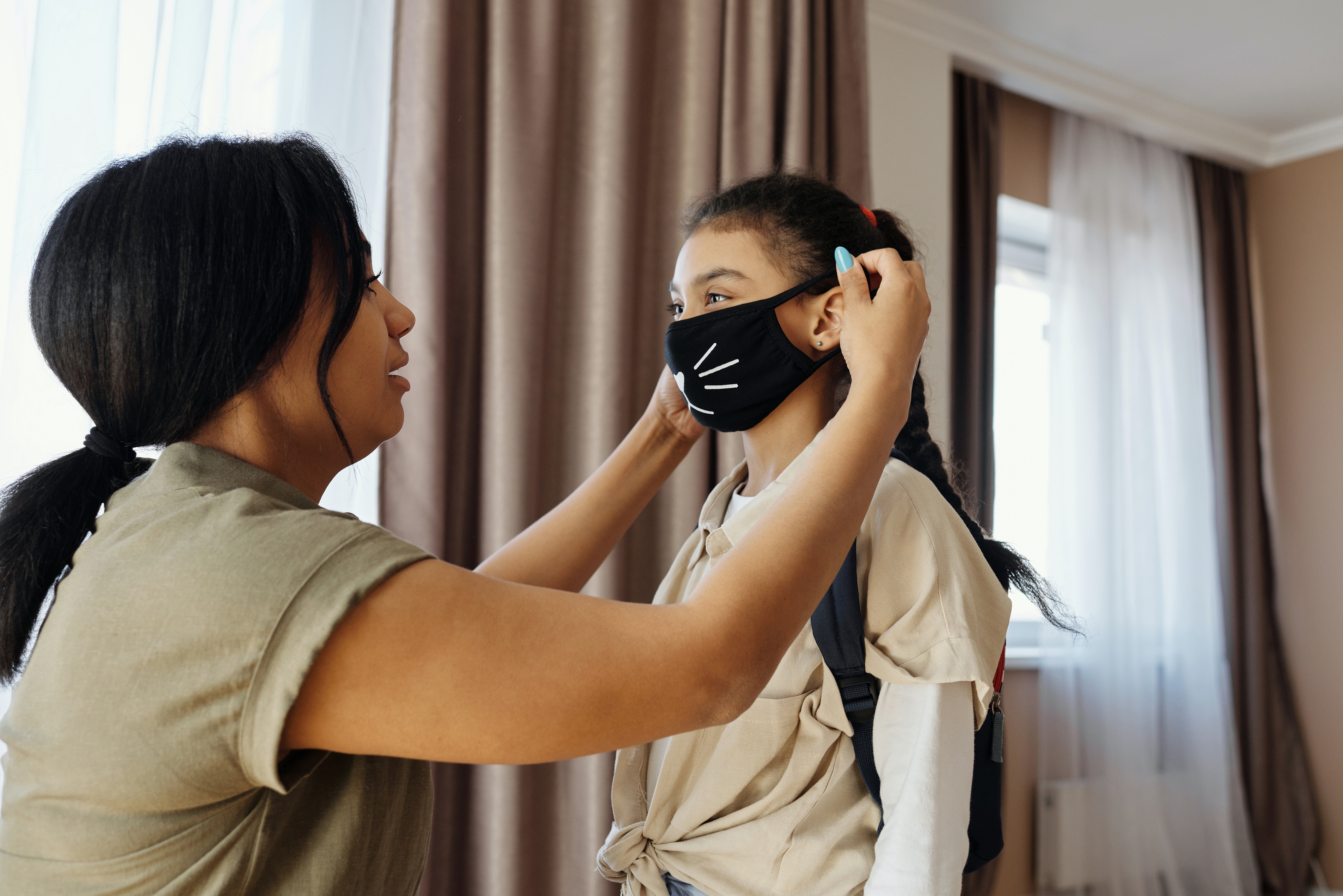
The past year and a half have forced a lot of transitions for families and children. Fortunately, the sun is coming up on our long period of pandemic living, and life is – sort of – returning to what we used to know. This transition is going to be messy for everyone, no matter their age or mental health. For kids, however, there are many things adults can do to ease the return to regular activities well ahead of back-to-school time this Fall.
Talk openly to name their fears. Invite honest conversation whenever you can. If your child feels like they aren’t going to be heard when they express anxiety or an opinion, chances are, it will snowball into an even larger issue. Be mindful that your child may not have the language to say the things they are afraid of. Carve out dedicated time to address their feelings, and when you see them reacting fearfully to an activity or behavior that feels “normal” in a post-Covid world, help them situate their reaction. Giving fears a name helps make them smaller and empowers kids to overcome things that might otherwise feel overwhelming. Be factual with your child, especially when they have concerns around illness, hygiene, or socializing. When you don’t have the answer, it is best to let them know that you aren’t sure but that you care about their question.
Be a listener. Once a child builds a habit around calling out their fears and anxieties, they are likely to be more vocal and curious. It can be tempting for adults to try to smooth things over by being dismissive or minimizing their experience. Instead of doing this, let them know that you hear them and that their feelings are important.
Don’t rush. Now is a time to grow children’s comfort levels slowly and safely. Use the flexibility of the summer months to your advantage by easing back into routines and regular outings so that the arrival Fall feels less like a shock. Let your child observe others’ comfort levels around social distancing, mask-wearing, and doing things indoors before rushing into the way things used to be.
Separate your feelings from theirs. Are you detecting fearfulness and anxiety in your children, or are you simply feeling your own emotions? When you’re taking good care of your young ones, the boundaries between their anxieties and your own can feel porous. Check-in with yourself to separate your processing and inner workings from those of your children. The trauma caused by the pandemic is widespread and is likely to touch many of us. If you’re the one feeling anxious and your child is eager to re-adapt to life or curious about the world, try to keep your panic to yourself and model the type of positivity that your child needs from you.
Demonstrate calm, positive behavior. You don’t have to feel peaceful all the time, but when kids are around, it serves everyone for adults to model calm behavior. If you are upset or outwardly fearful, chances are, your children will think that they should be fearful as well. If you are actively working to retain a calm disposition, you can share your methods for self-care and regulation with kids. Things like positive self-talk, deep breathing, and reminding yourself that you are safe and loved are useful practices that children can also benefit from.
Give it time to unfold – and be consistent. Are there routines that your family started while you were all stuck at home together? Make the silver linings of the pandemic shine beyond the period of isolation. This way, you create space to integrate new experiences in re-emergence with things that have become familiar and safe in your child’s short life. Some amount of consistency between the life you had while sheltering in place and the life we are all looking forward to will be deeply felt by the children in your family.
Be proactive about mental health needs. Is your child’s anxiety, separation anxiety, or ability to cope causing you concern? Don’t wait for severe anxiety symptoms in children – when it comes to emerging from COVID, proactive mental health support will help prevent more profound trauma. If you need mental health support for your children and family, get in touch with our team of care practitioners.






